Exercise and a good diet is healthier than being inactive and eating junk food. Why though?
Is there a model of health that can explain why exercise and a good diet is healthy? Can this model predict other activities that promote health and happiness? One model that accurately predicts healthy activities is living like a hunter-gatherer.
Our bodies are adapted to millions of years of us hunting and gathering.
Two million years is a lot of time for evolution to reward activities that helped us survive and reproduce. Eating food is an essential activity for our survival. The ways we got food in the past are a lot different to how we get food today.
- Hunting and gathering
- Agriculture
- Agriculture & Technology <– today
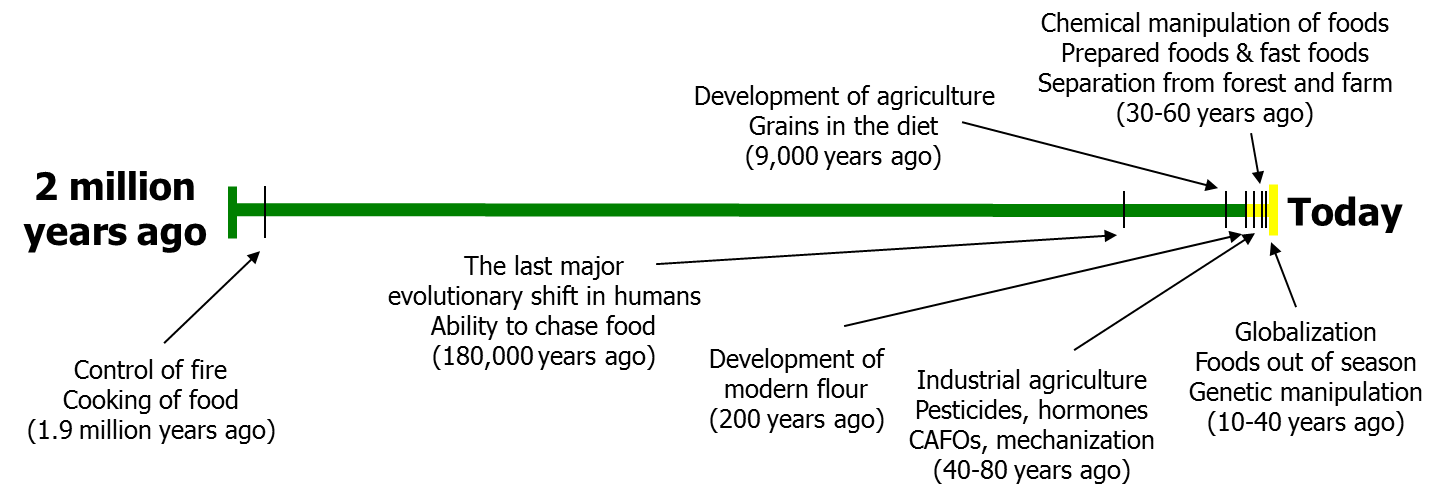 A timeline from this blog that shows just how long we were doing this hunting and gathering thing.
A timeline from this blog that shows just how long we were doing this hunting and gathering thing.
Hunting and gathering was our first and most successful adaptation, occupying at least 94% of human history.
There is evidence of our ancestors hunting and gathering as far back as 2 million years ago. When we (homo sapiens) appeared 200,000 years ago hunting and gathering was still the dominant way of life. It stopped being the dominant way of life around 12,000 years ago with the move to agriculture.
I’m using 120 years ago as the introduction of processed foods, enabled by improvements in technology.
If we include our ancestors:
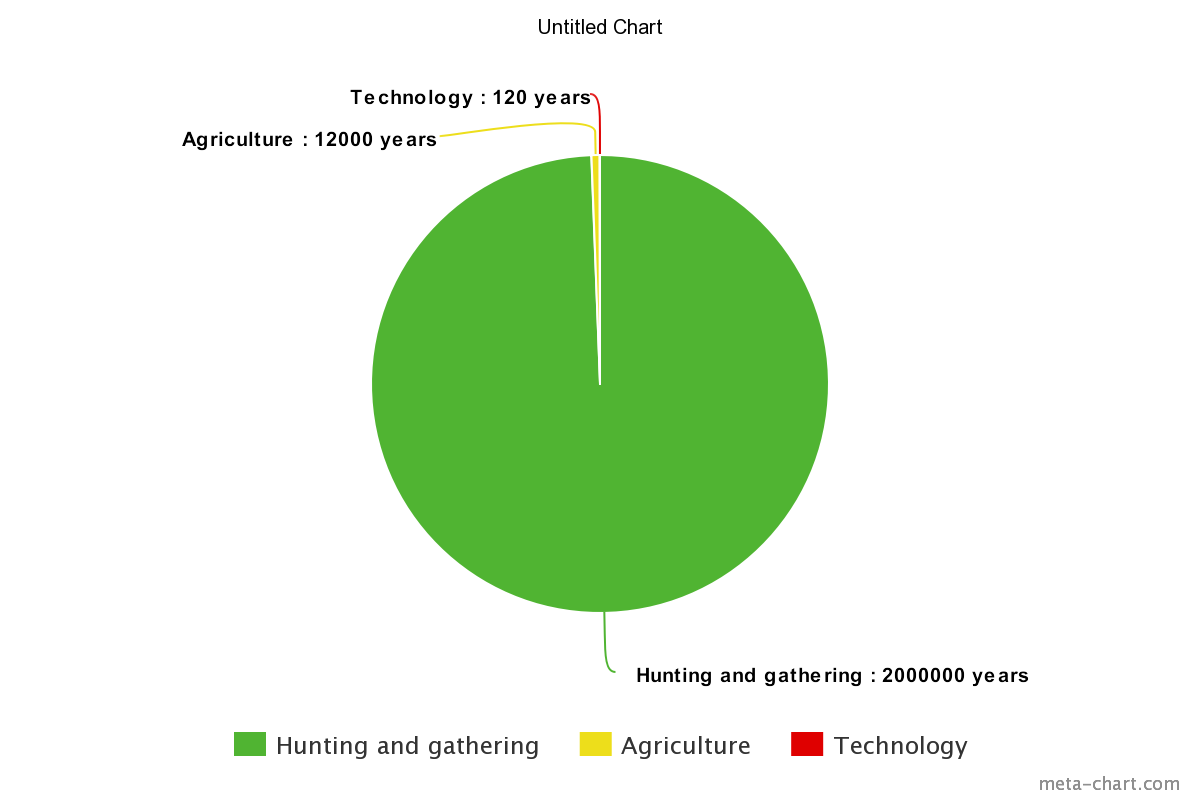 Hunting and gathering = 99.4%
Hunting and gathering = 99.4%
Agriculture = 0.6%
Technology = 0.00006%
If we only include humans (homo sapiens):
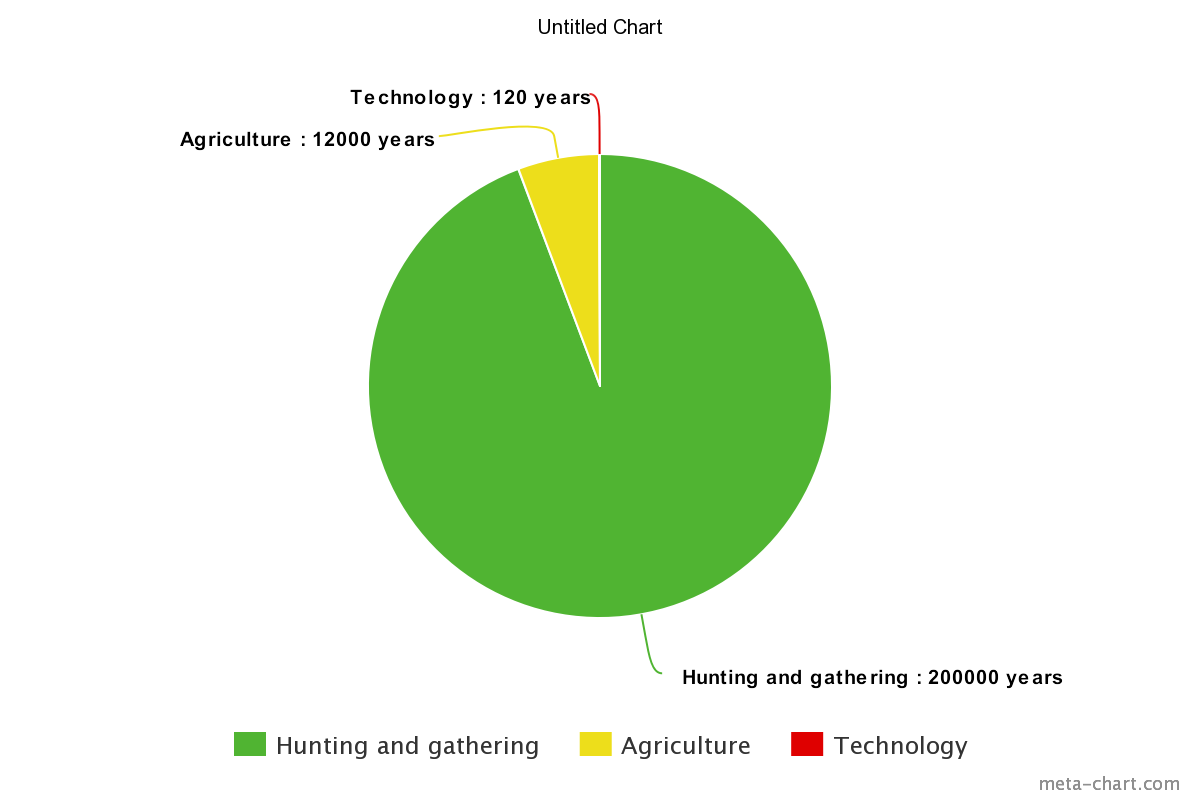 Hunting and gathering = 94.3%
Hunting and gathering = 94.3%
Agriculture = 5.7%
Technology = 0.0006%
That’s a lot of time to adapt us to hunting and gathering!
Here are a list of health advice, and how it matches hunter-gatherer activities that lead to survival and reproduction:
- Exercise. It boosts physical strength, makes you happy, lose weight, increases energy levels, improves brain function, memory and sleep (1)
Exercise is the activity of hunting and foraging. It was beneficial for hunter-gathers to be at their best while finding food. Here, have some BDNF to improve your brain function for the hunt. Exercise used to occur naturally. It was tied to our very survival.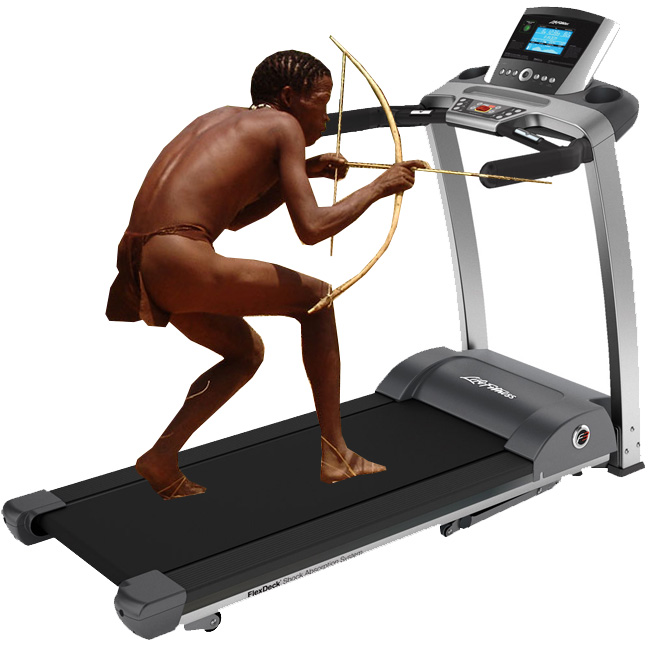
- Walk 10,000-15,000 steps per day (2)
Same thing. Hunter-gatherers walked and hunted for food. Their survival depended on being active. Our brain rewards activities that promote survival. - Intermittent fasting(2)
It increases BDNF and attention. I’m going to give your brain a boost to give you the best chance to find food. - Eat fruit, vegetables, small amounts of lean protein and fish (3)
Thi is the hunter-gather diet. - Avoid processed foods, sugar and bad fats (4)
Our bodies are not adapted to eating lots of sugar, fat and processed food. We feel good when we eat these things because it used to be hard to find calorie dense foods like honey. When we did we were rewarded with a surge of dopamine (survival and reproduction neurotransmitter). Energy dense foods are good for survival.
Today you can easily get these dopamine hits because sugar and fat is everywhere, and cheap! - Sun exposure produces vitamin D, lowers cortisol, increases serotonin and dopamine (5)
Hunting and foraging outside in the sun. - Being in nature makes you happier and more creative (6)
Hunter-gatherer life. - We learn best through trial and error (7)
Hunter-gatherer learning is practical. - We are social animals and feel happy when we help each other (8)(9)
We are adapted to live in close communities of about 150, as our hunter-gather ancestors did. - Minimalism (10)
Hunter-gatherers were nomadic. They moved where the food was.
They could not carry a child, a 60″ TV, two wardrobes of clothes etc. Could be why we feel free when we own less stuff. - Sleep (11)
Before the invention of artificial light – which suppresses the sleep hormone melatonin – we were more likely to get better sleep. We naturally felt sleepier after the sun went down because there was no artificial light to interrupt this.
That we’re born with Hunter-gatherer bodies into an environment that’s so different to the one we’re adapted to explains today’s mismatch diseases.
We can use the hunter-gatherer lifestyle to help us think about health advice and how it might line up or not line up with the lifestyle our bodies are adapted for.
Two great books on the subject if you want to know more:
- The Story of the Human Body by Daniel Lieberman
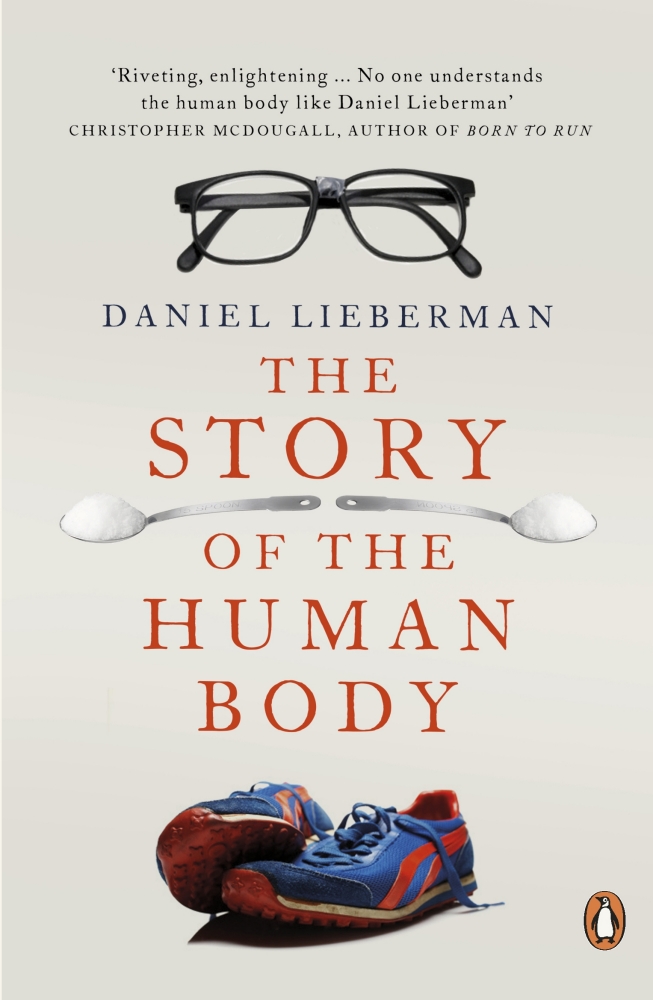
- Sapiens: A Brief History of Humankind by Yuval Noah Harari
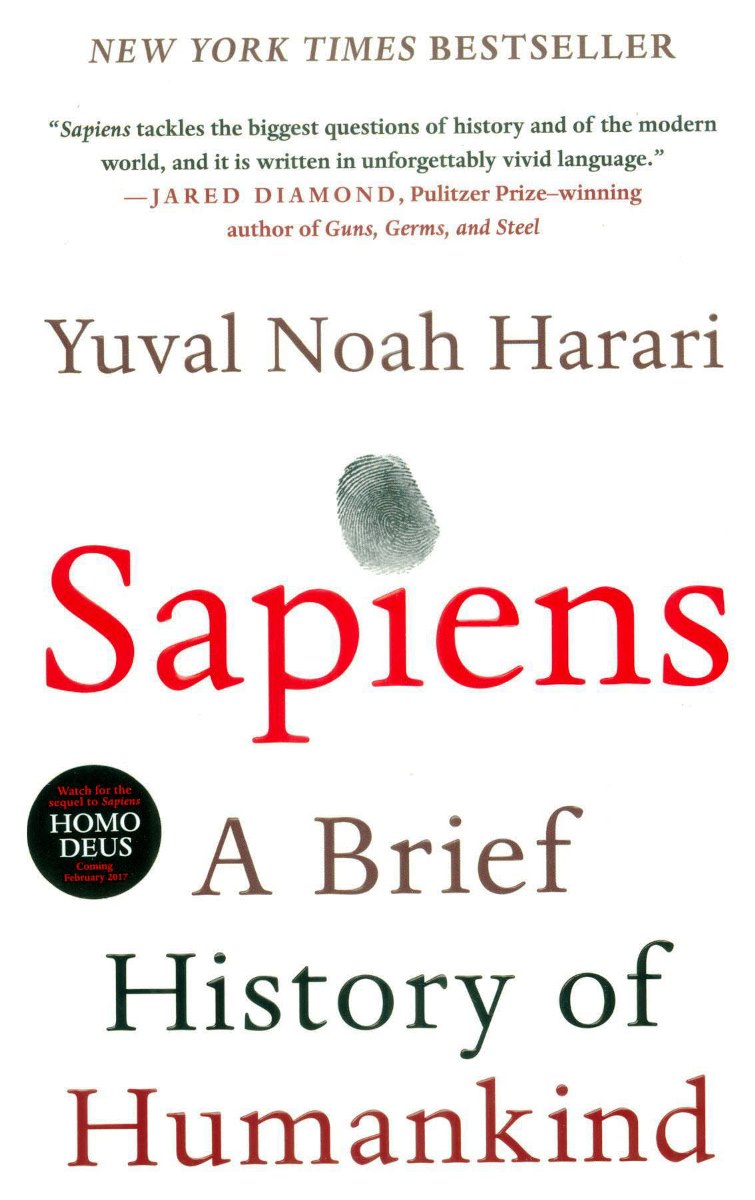
References
- http://informhealth.com/neurotrophins-fertilisers-for-your-brain/
- http://www.health.com/heart-disease/how-many-steps-a-day-prevent-heart-disease
- https://edition.cnn.com/2017/07/05/health/hunter-gatherer-diet-tanzania-the-conversation/index.html
- https://www.theguardian.com/science/2013/sep/22/dieting-disaster-evolution-daniel-lieberman
- https://www.selfhacked.com/blog/avoiding-sun-will-kill-14-proven-science-based-health-benefits-sun
- https://greatergood.berkeley.edu/article/item/how_nature_makes_you_kinder_happier_more_creative
- https://www.psychologytoday.com/blog/freedom-learn/201105/the-human-nature-teaching-ii-what-can-we-learn-hunter-gatherers
- https://www.theguardian.com/technology/2010/mar/14/my-bright-idea-robin-dunbar
- http://www.cracked.com/article_14990_what-monkeysphere.html
- http://www.greenhighfive.com/did-we-evolve-to-be-minimalist
- https://www.health.harvard.edu/staying-healthy/blue-light-has-a-dark-side
1 Pingback